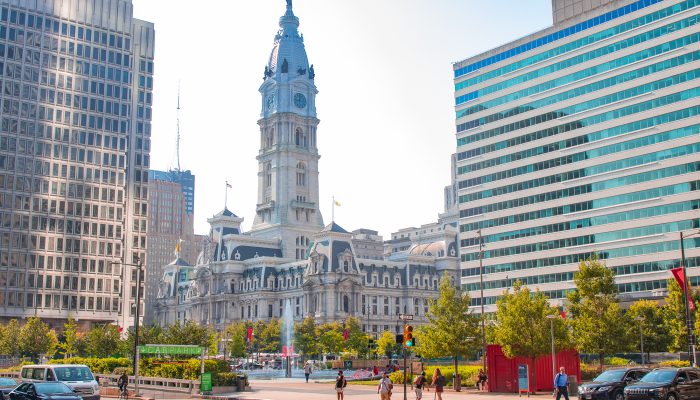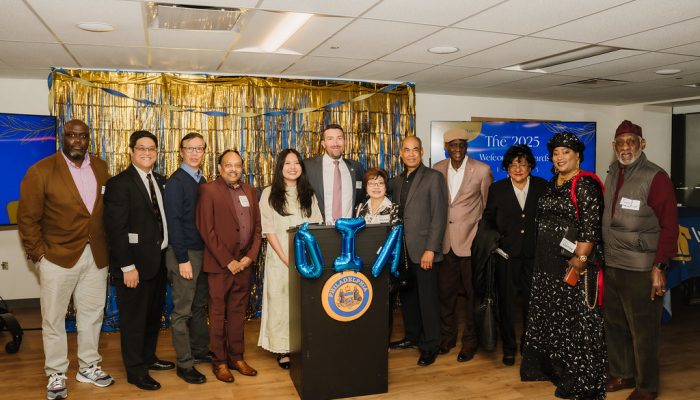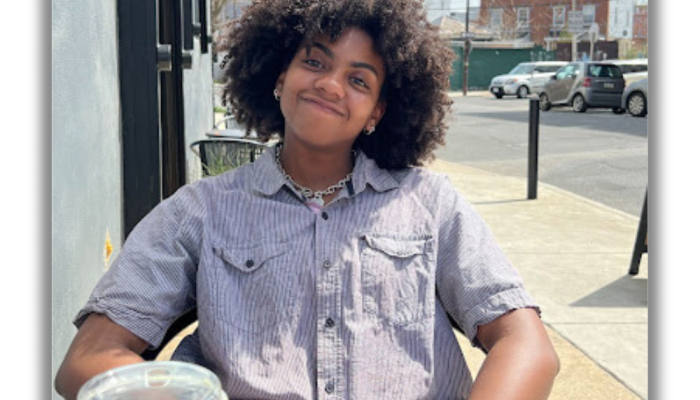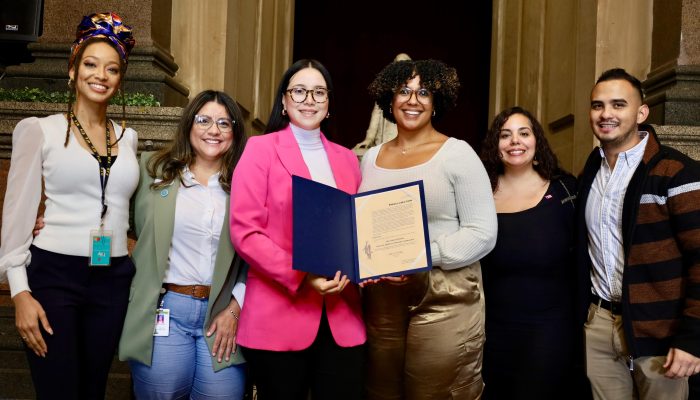Philly residents rely on City government for all kinds of information, services, and support, whether that be public health and safety information, access to records and documents, or participation in City programs to build well-being for individuals and Philadelphia as a whole. This includes our neighbors, family, and friends who use Language Access services to engage with City government.
The City uses Language Access services like translation (written messages) and interpretation (spoken messages) to provide services in “foreign languages,”—but these services benefit at least 359,000 people here at home in Philly who use them1. Last year, the City of Philadelphia provided more than 160,000 language services in 89 languages, mostly live or telephone interpretation2. All City programs and offices have resources to communicate with the public in any language.
Language Access Philly is a small but passionate team of both U.S.-born and immigrant professionals who are passionate about using language with the intention of keeping all of Philly healthy and safe. We asked the team —Why Language Access in Philly matters to them — and here’s what they each had to say.
Deise Rodrigues, PhD (Director of Language Access Programs): Language Access in Philly matters to me because it’s personal. Brazilian Portuguese is my native language, and as an immigrant, I’ve faced daily language barriers. I have had to navigate the legal system, apply for green cards for myself and my son, and go through the citizenship process — all while trying to understand and be understood. Language has shaped every part of my journey — from applying for jobs, making friends, and finding a community to accessing basic services and building a life in a new country. Every professional, civic, and personal step I’ve taken has involved overcoming language barriers. Language is part of who I am. That’s why I’m more than committed to this mission. I’m grateful for the chance to fight for the right to language access — so our multilingual and immigrant communities can be included, respected, and supported every step of the way.
Kahlil Thomas (Quality Translator Coordinator): I’m passionate about languages, partly because I’ve always lived close to immigrants. My great-grandparents were born in this country; my grandpa was born here in Philly. But immigrant communities raised and nurtured me as much as any other. Immigrant mothers and grandmothers fed me in their kitchens. Immigrant teachers nurtured my mind. An immigrant taught me my first guitar chords sixteen years ago. My experiences growing up taught me that whenever and however we come to this land, our futures are all tied up in each other. When immigrant communities thrive, people like me (and the child I used to be) live better lives, too. I’m moved by the powerful impact we have on immigrants here in Philly. Access for them means all of us live in a better city.
Rob Brown (Language Access VISTA): Language access matters to me because my own experience as an immigrant helped me to understand how difficult life can be when you can’t communicate effectively. As a native English speaker who’s mostly lived in the US, I wasn’t familiar with the concept of language access until recently. A few years ago, I was given an opportunity to live (and work) in Germany. After relocating, completing tasks that previously required minimal mental effort such as scheduling appointments, visiting the dentist or even buying groceries were only possible via a combination of luck, humility and the use of a translation app. I quickly gained respect for those who chose to relocate to a place where they didn’t speak the common language. I gained an even greater respect for those who were determined enough to learn the common language, something that I was never able to do with German. I also realized how fortunate I am that my native language happens to be the number one universal language. I believe that a thriving community should hear all voices. Language access is a requirement to achieve this goal, and I joined Language Access Philly to help realize it.
Whether they serve you or your neighbor, accessible services mean everyone on your block can have a fire alarm installed, every business in your neighborhood can pass a safety and sanitation inspection, and every parent at your local school can stay up to date on health information and alerts. Philadelphians can all respond quickly and collectively to emergencies thanks to multilingual text alerts from #ReadyPhiladelphia.
Even if you speak English well, these services can help you share information and resources with a friend, family member, or a community organization working in your neighborhood.
Language Access Philly remains committed to championing Language Access for all in Philly. Our award-winning Open Data project is a great place to visualize the City’s Language Access data from previous years.




